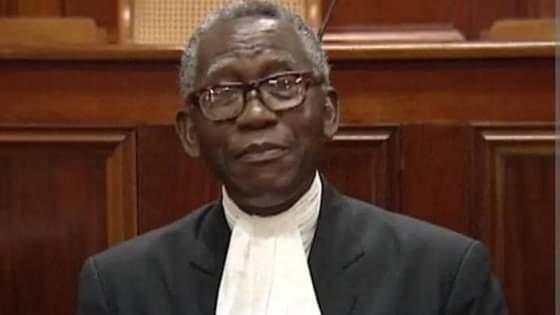Running Sierra Leone as a business is as practical as it is in the UK, US, the world over
Rebuttal to Mustapha Wai’s “Running Sierra Leone as a business is an Impractical proposition”
I’m here inundated to perform this very unusual task of rebutting Mr. Wai’s ostensible effort to attribute “traditional government” and “physical businesses” to President Koroma governing Sierra Leone “like a business”. Disconcertingly, Mr. Wai affixes “concern” to the phrase. The very basis of Mr. Wai’s argument lacks precision, unable to provide an explanation of what he understands by the phrase itself he chose the soft path to assume for the President’s proponents that they may think of projects. Deceitfully, he arrives at a vague conclusion and dismiss proponent’s understanding of projects as nothing but a “Ponzi scheme”…continues in free for all”. How come Mr. Wai generates answers for both the President and supporters and move on to use those answers to develop a sane argument, I’m still bewildered? (Photo: Ibrahim Ahmad Kargbo, author)
Let me briefly engage you with this meaning you don’t know Mr. Wai, I’m sure by the time you run through the piece you’ll have concede inadequacies. I hope you are attune to current trends of economic globalization, a process gearing towards worldwide economic interconnectedness? Its inevitably the principal .structure shaping the world economy since the start of the 21st Century; it exalts “…economic redistribution, state guaranteed economic security, publicly provided services, domestic ownership, control of key economic sectors, governmental protection and provision of better compensated and more stable jobs” (Kalleberg, 2009).
Globalization’s preference for private over public, ‘free-market fetishism” and calls for states to be “…run like a business” (Pec 2008) gives it the aura of an expression of political power through hegemonic economic public policy. That free market economy can be a sound basis for policy is seen in the marked success of the Thatcher/Ragan administrations which have been regarded by scholars as the climax signalling a globalized economy when the former USSR and China followed suit. Wake up Mr. Wai; the by-product is tariff elimination, currency deregulation and the deployment of “enterprise models” allowing the state to be “run like a business” (Peck, 2008). Core governmental functions are subcontracted to the private sector creating a blurred boundary between private and public and producing active and responsible citizens in the process like you here Mr. Wai.
Mr. Wai amuses me in discussing irrelevant institutional differences (based on vague assumption) between physical business & traditional government as politics. Examining features of government and businesses is a waste of breadth to build an argument that has no basis; that’s certainly not the business of this rebuttal, much like the BBC interview in which he allege that the President responded “we are going to make money” on what he mean by “government like a business”….What’s wrong in this response Mr. Wai is unable to establish. Making money in this economic neoliberal/globalization age entails greater liberalization and privatization. As I write key sectors like the Sierra Leone Ports Authority have been privatized, and a few more on the pipeline. The very existence of a National Commission for Privatization should’ve drawn your attention to the fact that the aim is maximizing the impact social services provide (more revenue/profit accrued to sustain services and enhance expansion of development).
Mr. Wai’s conclusion leaves me sobbing his ineptitude when he claims it’s rhetoric for EBK to have said he’s running Sierra Leone like a business. I’m enthused at this point to again sit Mr. Wai for another brief dialogue on rhetoric and politics. Murdach (2006) had forewarned your likes that “rhetoric goes beyond using words to persuade and claim victory but to negotiate and broker agreement satisfactorily by all” (Murdach 2006, 367). I’m refusing in this instance to assume what you infer by “rhetoric” but language, they argue, is claimed to be used by politicians to stay in power putting such rhetoric into policies for individual choice than on what is real (Menjivar and Kil 2002, 162). Bessant et al concludes that language as this is used as an act by politicians to ‘persuade people’ (Bessant et al 2005, 306). The choice is yours Mr. Wai to think out of the box and come to terms with reconciling your inadequacies. Ever slaying your argument is the demand for EBK’s shareholders in your imagined interpretation…..already equating EBK to a CEO and are ready to hit more clutches…
See why this task is so unusual of me Mr. Wai? Government like a business does not mean infrastructural or development projects, it does not even connote traditional government and physical business of shareholders converging to invest. Peck must have done a great job to relate the phrase to the current neoliberal/economic globalization shaping the global economy. Five more years EBK (y)
Ibrahim Ahmad Kargbo, Murdoch University,Australia
Stay with Sierra Express Media, for your trusted place in news!
© 2012, https:. All rights reserved.






Mohamed S Kamara
/
Well said bro
22nd August 2013Granville Sharp
/
My God!
una all na de same. So so norshi norshi en roto rata.
Una all day write for make una two turn four. Integrity nor day again but God day watch una.
We people dem day suffer because of lack of good leadership since 1961 yet una way for show del de light just day pan sell game. En show say una sabi. Una all na de same soup
28th September 2012